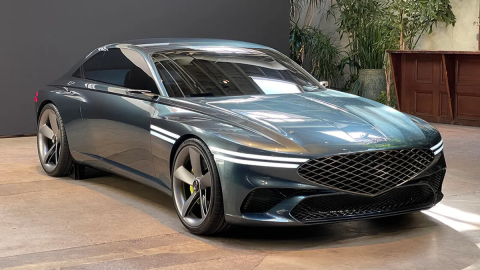Kia and Genesis follow Hyundai in adopting Tesla's NACS Plug
Kia and Genesis, two world-renowned car brands affiliated with Hyundai Motor Group, have announced their plans to transition from the CCS1 (Combined Charging System 1) connector to Tesla’s North American Charging Standard (NACS) in the North American markets.
Kia and Genesis’ decision to transition from the CCS1 connector to Tesla’s NACS in North American has surfaced after a similar decision by Hyundai. All the three automakers are part of the broader Hyundai Motor Group. It means the entire group is going to make the transition simultaneously, starting with the launch of new or refreshed models equipped with the NACS charging inlet in Q4 2024, roughly a year from now.
The adoption of the NACS charging inlet by the Korean brands’ forthcoming vehicles means that they will come equipped with built-in compatibility for the Tesla Supercharging network in North America (Canada, Mexico and the United States). Moreover, exiting models from all the three brands that adhere to the CCS1 charging standard will gain the ability to recharge at Tesla Supercharging stations once the so-called NACS adapters become available. It is expected to start from first quarter of 2025.
Additionally, the Korean brands’ vehicles featuring the NACS charging inlet will have the flexibility to employ CCS1 adapters, which will allow them to get their batteries recharged at older CCS1 charging stations as well.
Kia official emphasized that EV owners can access and conveniently pay for Tesla’s Supercharger network via the Kia Connect app once a software update is finished. The mobile app will encompass essential functions like locating and navigating to Tesla Superchargers in Canada, Mexico and the United States. Additionally, the app will supply information about charger availability, status, and pricing.
However, none of the three aforementioned automakers disclosed the potential fast-charging power output of Tesla's V3 Superchargers, which currently don’t support voltages of more than 500 volts. It may be noted here that the EVs based on Hyundai Motor Group's E-GMP platform utilize battery packs ranging from 600 to 800 volts. Thus, a higher voltage is necessary to harness the full potential of fast charging, or else charging power may be limited.
Meanwhile, Hyundai and Kia, in partnership with a number of other automotive companies, are working on an ambitious joint venture (JV) aimed at establishing a comprehensive EV charging network across North America. This initiative is poised to introduce as many as 30,000 individual charging stations, marking a significant step in expanding charging infrastructure.
